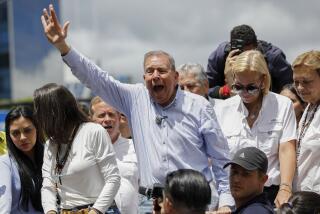Colombian electoral authorities investigate President Gustavo Petro’s 2022 campaign

BOGOTA, Colombia — Electoral authorities in Colombia on Tuesday ruled in favor of investigating financial misconduct allegations against the 2022 campaign that got President Gustavo Petro elected.
The investigation to be carried out by the National Electoral Council will focus on whether the campaign exceeded financing limits and whether it accepted funds from prohibited sources. The electoral body previously delayed deciding on the inquiry, which some, including Petro, see as politically motivated and illegal.
The outcome of the investigation could result in fines against some campaign staffers, including its auditors, treasurer and manager. It can’t lead to an immediate impeachment of the president.
The council’s decision came after two of its 10 magistrates presented a report alleging that Petro’s presidential campaign exceeded financial limits by about $1.2 million. Petro has denied the accusations, which he has said are an initial effort by his adversaries to remove him from office.
Petro responded to the council’s decision with a brief message on the social site X: “The coup d’état has begun,” he wrote. He previously characterized the investigation as a “Colombian-style coup d’état” intended to be the first step to remove him from office.
The council’s 10 magistrates are elected by Congress and represent various political parties. At least two of them belong to Petro’s party.
A statement from the council announcing its decision Tuesday listed 12 financial transactions that authorities allege the campaign did not report. The statement also alleged that Petro’s campaign received funds from “prohibited sources of financing,” including labor organizations.
The possibility of an investigation against the president generated a political and legal debate about the council’s powers and presidential immunity.
In Colombia, only a commission of the House of Representatives can investigate the president. But the country’s Council of State last month ruled that the president’s immunity doesn’t prevent him from being investigated by another government body such as the National Electoral Council, which can only impose financial penalties. The Council of State maintained that only Congress can impeach the president.
No president in Colombia has been removed from office in a political trial in Congress in the last 30 years.
Petro’s attorney, Hector Carvajal, last month told a radio station that he had already filed an appeal with the Council of State to reconsider its decision and clarify that the president’s immunity is comprehensive, so he couldn’t be investigated by electoral authorities.
Carvajal warned that should electoral authorities open the investigation, he would file an appeal with Colombia’s Constitutional Court and would also turn to the Inter-American Commission on Human Rights.
More to Read
Sign up for Essential California
The most important California stories and recommendations in your inbox every morning.
You may occasionally receive promotional content from the Los Angeles Times.










